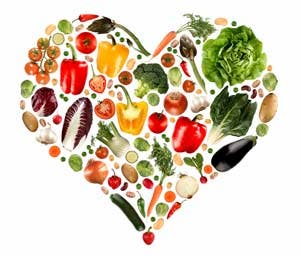These Are The Real Amounts Of What You Should Be Eating

Add high nutrient food into your recovery diet!

Published with permission from The Jogger To Runner by Karl Gruber.
Proper nutrition is an absolute must in order to achieve your weight loss and fitness goals! You may already seem to have a good grasp on this, but please understand that food is fuel for your muscles and workouts. Complex carbohydrates are the most important food fuel for exercise. This is because your body breaks down the food and sends these complex carbs directly to be stored in your muscle fibers, with any excess stored in your liver (which is only drawn upon when your muscles are depleted of its fuel). Even if you have food allergies you should still be able to pinpoint specific foods that will help fuel your body before, during and after your workouts. As with any diet, you should find a balance of protein, fats and carbohydrates, whether in your daily food intake or as you specifically fuel before a run, during a run or after a run.
As for during, there is a dizzying array of energy gels, bars and chews to choose from and can be found everywhere, from your local running specialty store, to your grocery store, to the local corner convenience store. I am not going to say that this or that one are the energy food you should buy and use, as only you will be able to determine what works, keeps you running well and very importantly, allows you to recover well too.
When it comes to energy food products, however, never depend on only them as your main source of nutrition. As author Monique Ryan, states in her book, Sports Nutrition for Endurance Athletes, “Because you regularly participate in endurance training for your sport, your daily food intake has a significant impact on your health and recovery.” Your main source of energy should always come from your daily intake of whole, healthy, real foods, such as poultry, fish and meats, fresh, colorful veggies, sweet potatoes, milk, and eggs and more. Following most nutrition plans, avoid the sugar, salt and fatty fast foods that are so readily available. Ryan suggests that your sports diet comprise 35 percent grains, 25 percent fats, 20 percent fruits and vegetables, 15 percent protein, and five percent dairy. When it comes to the wonderful world of energy foods, use them to supplement your energy stores necessary for performing long and well as a runner.
I am not a dietitian, and my brief comments in this book aren’t the definitive “say all, do all” answer. I am, however, a runner who has logged tens of thousands of miles and fine tuned what works for me nutrition-wise to keep me going mile after mile…after mile. So be willing to experiment with different foods and food combinations to see just what works for you.
Did you love this? Here’s some more info on nutrition:
Tips For Fueling Before, During And After Runs
Crazy Eyes Shares Her Two Essential Running Tips
This Color Coding System Will Remind You Which Foods Are Best